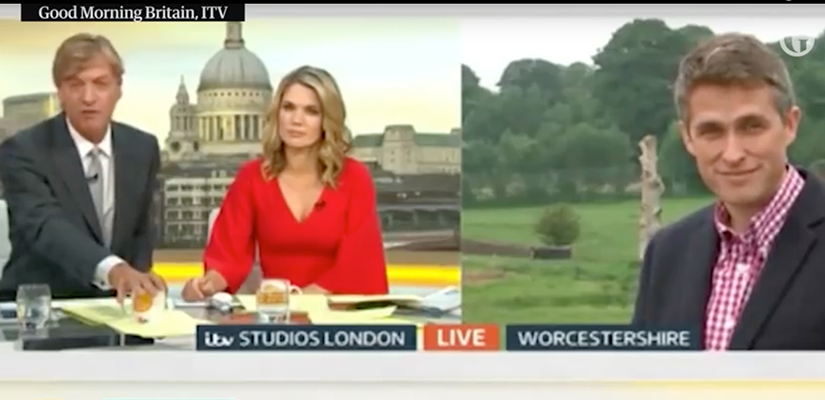The #tweetyourthesis hashtag has been doing the social media rounds in higher education since it was coined by Susan Greenberg, a lecturer at Roehampton in 2012. Or that’s what my own very cursory and possibly unreliable Google-based research tells me. Whatever the hashtag’s origin, it quickly caught on as a way of letting off a bit of steam between postgrads to relieve the pain of knocking out (😭) a 50,000 word research paper. But after spending an enjoyable and productive afternoon media training scientists at the University of Birmingham (including a PhD student about to start writing up her thesis), it struck me that this harmless bit of fun is a brilliant way of helping prepare all academics for media interviews whether they’re talking about their actual theses or some other research.
Why? Because turning your thesis into a Tweet (even if you don’t publish it) can help you synthesise what your research is about from a layperson’s perspective and become a better communicator to external audiences as a result. After all, #sciencecommunication is vitally important but that’s another hashtag! Back to #tweetyourthesis …
It’s a highly reductive process. Turning 50,000 words or more into 280 characters or fewer is a challenge. But doing media is a challenge. Not least because it too is a highly reductive process with that 20 minute interview (at 3 words per second approximately 3,600 words) being edited down to a 20 second soundbite (of about 60 words). So better get used to it before the interview and, if you actually #tweetyourthesis , crowdsource advice from others who’ve been there, done that, got the Today programme tee shirt (it has a picture of John Humphries on the front and a Rottweiler on the back).
Here at ACM Training I use a planning matrix to help academics (and others for that matter) prepare for interviews. It sounds rather lofty and students of a certain age are often disappointed when I don’t conjure Keanu Reeves from my training tool box. But when all is said and done it’s simply a piece of paper or screen divided into three columns. Column one is where you jot down the three most important features of your research – let’s call them key messages. These shouldn’t necessarily be what’s most interesting to you but what’s most interesting from the audience’s perspective. Column two is where you choose up to three facts or figures to evidence those messages. And column three is for the narrative or stories that provide illustration. Think of column one aiding brevity, column two understanding or rationality, column three the emotionally engaging stuff and all three together the clarity and relevance. I then ask my trainees to practice extemporising a series of 20-30″ soundbites from their matrices using the stopwatch or countdown timer on their smartphones to keep them honest.
I like playing #tweetyourthesis too, although, of course, I wouldn’t dream of actually Tweeting your thesis (and I haven’t started mine yet). So here’s my effort at taking the editor’s proverbial red pen to the academics I met earlier this week. You know who you are. And, if I’ve done a half decent job, your colleagues should recognise you from what I’ve written. Feel free to copy, paste and Tweet what follows from your own social media accounts – using the #tweetyourthesis hashtag, naturally. Or, better still, come up with your own version and Tweet that instead.
A quantum clock so accurate if you set it to midnight at Big Bang it’d only be a second out nearly 14 billion years later. (That’s today). One that potentially could make navigation systems more accurate especially in remote areas hidden from the gaze of satellites. [266 characters]
Birmingham University quantum physicist
A contact lens-size sticking plaster with tiny grooves on its surface that encourages collagen (think human scaffolding) to heal without scarring, could save the sight of million and reduce the physiological and psychological impact of other scars. [248 characters]
Birmingham University biochemical engineer
Atoms harnessed to measure tiny changes in gravity to help us “see” below the surface. Like Newton’s apple but smaller and colder. Research that could be applied to roadworks and save us hours sitting in avoidable traffic jams and £ millions in lost productivity. [263 characters]
Birmingham University metrologist
It’s worth noting the #tweetyourthesis hashtag started when Tweets were limited to 140 characters. Now you’ve got 280. Easy innit?
[products columns=2 skus=”wpid=37,wpid=109″]







